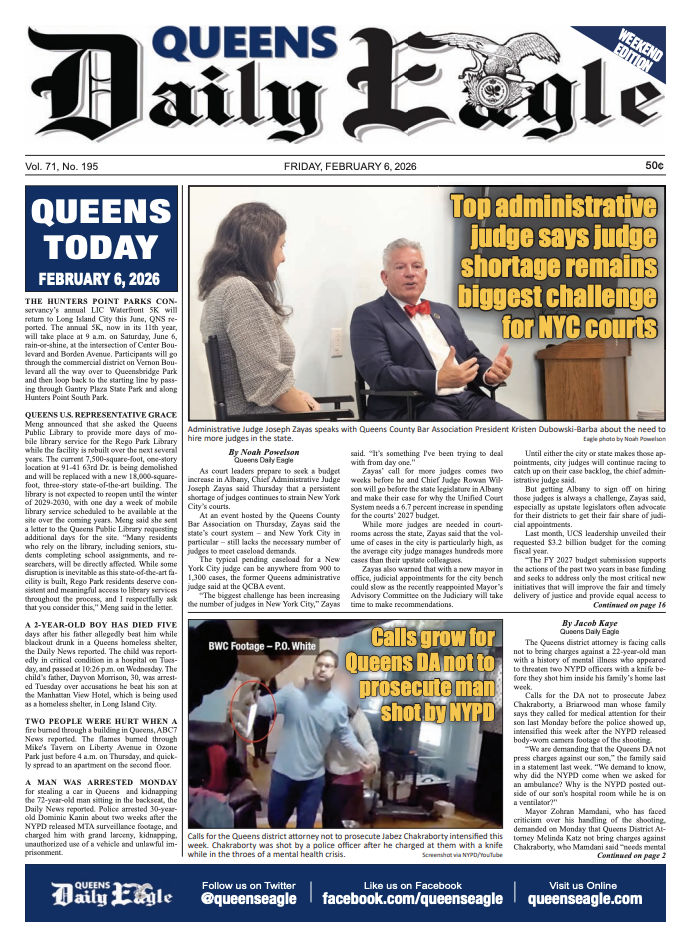LIC resident to premier Multiple Sclerosis documentary on PBS
/Award-winning filmmaker Jason DaSilva is premiering a documentary about Multiple Sclerosis this week.
Photo via Shfeingold/Wikimedia Commons
By Rachel Vick
The latest project from an Emmy-award winning Long Island City resident is premiering this month on PBS, offering an in-depth look at Multiple Sclerosis.
Framed through filmmaker Jason DaSilva’s own diagnosis with primary progressive Multiple Sclerosis, the documentary “Predicting My MS” explores the factors that might have played a role in developing MS. It premieres on Wednesday, Feb. 23.
“This film is about my life story so it's different from the others I've done,’ DaSilva told the Eagle. “It was pretty awesome, really great for me, the way I got to dig deep and look at all the factors, where I don't think everyone has that opportunity.”
DaSilva and the team spoke with New York City-based doctors to learn , and though the pandemic limited DaSilva’s ability to work in-person, he found the virtual interviews to be a great success.
His hope is that audiences — whether individuals with connection to MS or a casual viewer — will look at the culmination of six months of research and walk away with a broadened perspective.
“I think that it was really invaluable for me to go through it because I would never have a chance to see all these factors so deeply revealed… and I get to use my creative skills to share with the rest of the world,” DaSilva said. “It’s a science documentary so it's all about learning.”
The subtype of multiple sclerosis he was diagnosed with causes the immune system to attack the protective coverings of nerve cells in the brain and spine, interfering with the nervous system’s ability to transmit signals from the brain to the body.
Causes for developing MS are wide ranging and can include genetic and environmental factors. DaSilva learned that there were seven potential reasons for his case, like working near ground zero, but the genetic predisposition to neurological disease was next to none.
DaSilva is adamant about not having his life or diagnosis treated as a tragedy, and said the ablist tendency to characterize his life and similar experiences as such “drives [him] insane.”
“I don't think people should be treated like that - as a tragedy - because we're not a tragedy; we’re very capable human beings,” DaSilva said. We’re kept in that box because other people treat us like that.”
“I deal with it on a day to day basis [and found that being] concentrated on my creative work is the best way, so sharing that with others, bringing others on — I hope that can be shared with others in my particular situation so they can do the same,” he added.
DaSilva used his experience and circumstance to found the nonprofit AXS Lab, which works to advocate for people with disabilities, and created AXS Map — a digital tool that lets users review and rate the accessibility of venues.
He said the changes to his western Queens neighborhood, though complicated culturally, are “good for accessibility purposes because anything new that goes up needs to comply with ADA standards.”
“[AXS is] one of the ways that I did something positive because I got my MS diagnosis,” he said. “That would be one for sure.”
Among the others, he said, is being able to share his childhood experiences and journey with his son in Texas through his filmmaking.
The experienced filmmaker is working on the third piece in a series about the progression and facets of life with MS, and said he looks forward to being able to apply the fleshed out investigative skill set moving forward.
“At the end of the day nobody really knows about MS so I can share with the viewer and my son the details about the disease,” DaSilva said. “It really is raising awareness.”




